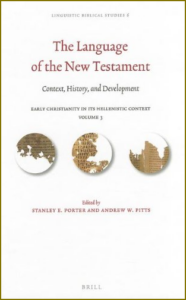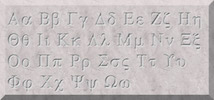Try to match Greek words to images without translating those words into English.
You can find this brief exercise in lesson 24 at HellenisticGreek.com. While the grammar found there focusses heavily on translation, in recognition that the primary goal of many who set out to learn Hellenistic Greek is to learn to translate Greek into English, translating is not the best way to acquire a language. In fact, if that’s all you do, you will never actually acquire the language.
For that reason, I am slowly adding exercises that require the reader to process the meaning of Greek words and phrases without having to reference English at all.
If you have to translate the Greek you are reading into English before you can understanding it, you are not acquiring Greek. You will always have to translate before understanding if you learn that way. Your goal should be to read Greek and understand it directly in Greek, without having to translate.
If you enjoy this kind of challenge, let me know and I will post more of the exercises here.

 Today I added two items to the bibliography at Greek-Language.com. One was a paper by Paul Danove that has been around since 2013, but I have failed to add it. My apologies to Paul!
Today I added two items to the bibliography at Greek-Language.com. One was a paper by Paul Danove that has been around since 2013, but I have failed to add it. My apologies to Paul!  Stolk, Joanne, “Dative Alternation and Dative Case Syncretism in Greek: the use of dative, accusative and prepositional phrases in documentary papyri.” Transactions of the Philological Society. Volume 115:2 (2017) 212–238.
Stolk, Joanne, “Dative Alternation and Dative Case Syncretism in Greek: the use of dative, accusative and prepositional phrases in documentary papyri.” Transactions of the Philological Society. Volume 115:2 (2017) 212–238.
 I have updated and simplified the
I have updated and simplified the  That’s right. You see an ad in the upper right corner of the main page, just below the header. (And there’s another one on the right near the bottom of the main blog page.)
That’s right. You see an ad in the upper right corner of the main page, just below the header. (And there’s another one on the right near the bottom of the main blog page.)